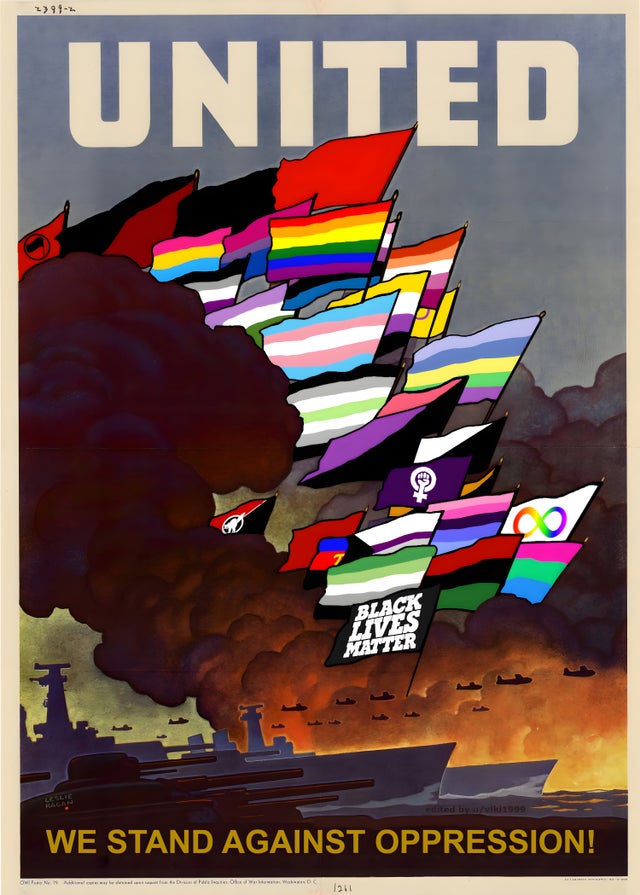I'm indigenous, and my culture is a shadow of its former self. This got me thinking: what sort of a world would it be where indigenous cultures are all thriving everywhere? Then I followed that thought for way too long and built an alternate history world.
It would be a world of strong local flavor: everywhere you go, there's vernacular architecture, traditional clothing, local food. Inuit cultures rule the Arctic. Aztecs rule Mesoamerica.
I've written an alternate history that I won't bore you with. Imagine there was never a 'Great Divergence' (where the West pulled ahead) but instead various cultures developed at roughly equal speeds, and maybe shared technology more rather than use technology to exploit/oppress.
Technical services are on a guild-system. The guilds recruit young people, train them up, and each local community (tribe, if you like) has a deal with the important guilds: you give us your services and we give your members food, board, other privileges. This explains why technology (like the steam engine) spread around the world without being used by one culture to oppress another. A person would have tribe-membership, with its duties and perks, and maybe guild-membership too, with its duties and perks.
The Americas and Australia are totally different in this alternate history, because they never got Europeanised. Imagine a developed (21st century) Aztec culture, Cree, Inca etc. with the internet and electricity and so forth. Every culture is in its bloom of glory – it's a world of strong culture. I understand this opens me to charges of exoticism, but counterpoint: my own culture (not gonna doxx myself) is among them. Some worldbuilding is all about physics, some is all about military theory; this is all about anthropology, all the strange and fabulous variety of human religions, fashions, food.
There are international elements to counter the extreme localism. In the alternate history, in the age of the steamship and telegram, international culture emerged. (This 'internationalist' phase actually happened in the mundane world as well: the first modern Olympics was in 1896; Esperanto appeared in 1887. It just wasn’t very successful.) Speak your local languages at home: the internet, academia etc. are in the global language. There’s art in local languages (storytelling, etc.) and there's international culture in the international language – the equivalent of The Simpsons or Star Wars that you can joke about when speaking with someone from the other side of the world.
Another internationalist element would be cultural exchanges. Imagine you’re a Rus in Russia, and a Himba troupe come to stay in your community for three nights, do dance and storytelling, share your food, flirt. This is a form of diplomacy.
Thriving indigenous cultures implies thriving ecosystems, as the two are inseparable. So it’s kind of a solarpunk/environmentalist world. Which fits with the idea of local economies/local cultures.

Awesome, hope to see more of this! I have my own project somewhat similar to this...it's a different world altogether, not alt history though, but heavily inspired by it. The cultures in my world are often paired up with one or more across the world for inspiration, so eg. Central American/Indian/West African or NA Plain/Turkic/Mongolian
I am not indigenous but I was sick of fictional worlds being just another Europe-but-magic and I am fascinated by the similarities in language, culture, and mythology between "pre-modern" culture (almost entirely non-European, but I ended up including pre-Christian Europe to a small extent). I especially admire things which are truly impressive on a global historical scale but somehow lost to time, like how nations formed confederations eg. the Haudenosaunee, or the wide trade and communications networks eg. Plains Indian Sign Language.
Anyways I just wanted to share that I love to see this kind of anthropological worldbuilding. If you wanted some other examples, I liked the Spirit Island board game and hope to check out the ttrpg Coyote and Crow sometime (C&C is prob the closest to what you are doing)
Right! Exactly! Three similarities we see over the world –
Tribal confederacies. The Caledonians in Scotland, various Pashtun confederacies in history, various North American ones.
Small tribal units and big ones. Among the Mapuche, several lov formed a rehue. Among the Māori, whānau confederated into larger hapū; hapū confederated into larger iwi. Among the Bedawin, several bayt formed a goum.
Tribal assemblies: þing among the Nordic folk, veche in the Slavic world, sangha in India, becharaa among the Semai, Jirga among the Pashtun
Community halls or 'third places': the mudhif of the Marsh Arabs, the Toguna of the Dogon, Bulgarian Chitalishte, Caravanserai of the desert people
Managed commons: the tabu of the Hawai'ians, the hima of the Arabs
Customary law, often with restorative justice: xeer in Somalia, coutume in France, pashtunwali, Albanian kanun. Law without cops of a Babylon-type centralised state.
So I think it's somewhat valid to generalise that there exists a pattern called 'tribal', and then it's interesting to generalise that to the whole world. Was it historically universal? No of course not, but no other model was either. The Westphalian nation-state emerged and became dominant, I'm imagining what if tribal confederalism became dominant?